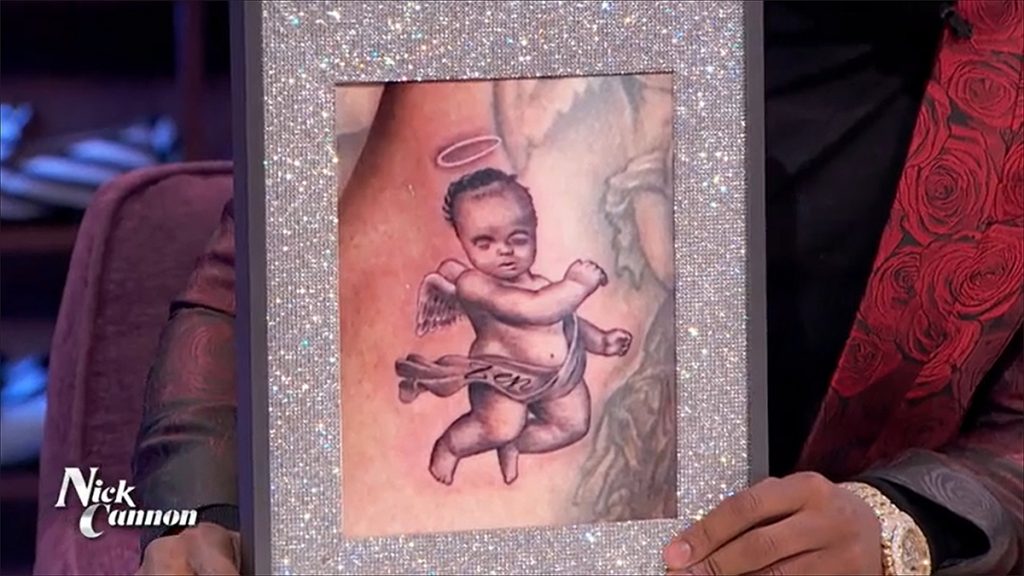How to Cope With Losing a Child to Cancer
- Nick Cannon shocked the world this week when he announced that his baby son died. Now, he is defending his decision to return to work.
- Zen Cannon was diagnosed with hydrocephalus, a condition that causes a buildup of fluid on the brain, and died Sunday at just 5 months old.
- Even though it's important for the child with cancer to have a support system, the parents dealing with the potential of losing their child need support, too. Experts tell SurvivorNet that everyone processes grief differently, and some may cope with grief by returning to “normal” activities.
"A lot of people keep asking me, like, 'Man why (are) you even at work?' Especially my family," Nick Cannon says to viewers during the Dec. 8 episode. "'Boy, you need to go sit down somewhere. You got too many jobs already! Allow yourself to just be yourself.'"
Read More"I was always taught, you go through it, you grow through it; you keep pushing. I'm here to show that I can fight through this, I'm feeling it, I'm vulnerable, I'm open. This is a special show dedicated to my beautiful son Zen," Nick Cannon says.
During his latest episode of The Nick Cannon Show (today), he unveiled a new tattoo he got in honor of Zen.
"That's actually my rib right there,” Cannon says while holding up a photo of the tattoo. “Last night (Thursday) I got the opportunity to go get a tattoo of my son Zen as an angel on my rib."
"It was a lot of pain, but it was so well worth it. I enjoyed every moment of the experience to forever have my son right here on my rib, right here on my side as my angel."

Nick Cannon Grieves His Son's Death
Nick Cannon delivered the heartbreaking news that Zen had died live on air during his show. He told the story of how he, Zen's mother, Alyssa Scott, and baby Zen visited the beach Sunday morning to watch the sunrise, sharing a photo of the three of them together.
"This is a special one. This is my Pic of the Day today, a picture that I actually had the opportunity to take on Sunday," Cannon says. "It's a beautiful photo of my beautiful son and his beautiful mother, Alyssa Scott, and it's a real moment."

As he told the viewers of Zen's short-lived time on earth that was riddled with health issues, he began to break down.
"He had this (really) interesting breathing and by the time he was two months old I noticed … he had this nice sized head, I called it a Cannon head. We didn't think anything of it, he had a normal Cannon head. But I wanted to take him to the doctor to get the breathing and the sinus thing checked out," Nick Cannon says.
He adds that he and Scott thought it would be a "routine process" bringing Zen to the doctors. But it was anything other than routine, as the doctors discovered the baby had a buildup of fluid in his head. He also had a malignant tumor that required surgery. He was diagnosed with hydrocephalus, a condition that causes a buildup of fluid on the brain.
“We were faithful and hopeful for that time," Cannon adds. "We carried on, he was still just playing with his brothers and sisters, I embraced every moment."
"Love to Alyssa, love to her extended family, and love to each and every mother who's ever had to lose a child, had to deal with a child with special needs … Mothers are superheroes. We're going to get through it."
Coping With Losing a Child to Cancer
Any parent will tell you that their greatest fear is losing their child. And that fear sometimes becomes a reality when a child is diagnosed with cancer something that affects the entire family unit. Even though it's important for the child with cancer to have a support system, the parents dealing with the potential of losing their child need support, too.
Recovering after losing a loved one to cancer, especially a child, is not a "one-and-done" process, many members of the SurvivorNet community tell us. Dealing with that grief is a highly personal process, and everyone goes through it differently.
'Therapy Saved My Life': After Losing a Loved One, Don't be Afraid to Ask for Help
"The five stages of grief are denial, anger, bargaining, depression and acceptance," Dr. Marianna Strongin, a licensed clinical psychologist and founder of Strong In Therapy Psychology, tells SurvivorNet. "These labels are tools to help us frame and identify what you may be feeling. They are not linear and can occur in a variety of ways."
"As you find yourself experiencing some of these stages, it is important to remember that the emotions you are feeling are meaningful yet temporary. If you approach them with compassion, kindness and eventually acceptance, you will come away from this period in your life more connected to your resilience and strength."
Camila Legaspi, during a previous interview with SurvivorNet, shared her own advice on grief after her mother died of breast cancer. For her, therapy made all the difference.
"Therapy saved my life," Legaspi says. "I was dealing with some really intense anxiety and depression at that point. It just changed my life. Because I was so drained by all the negativity that was going on, going to a therapist helped me realize that there was still so much out there for me, that I still had my family, that I still had my siblings."
Learn more about SurvivorNet's rigorous medical review process.


